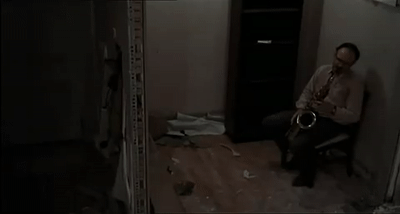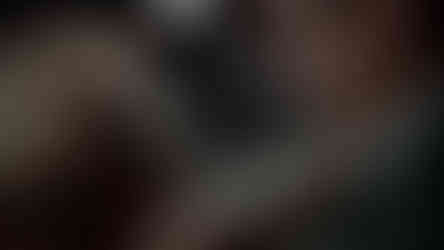The Conversation: Review - The Loss of Privacy
- Matthew Spence

- Jul 21, 2023
- 5 min read

Between the first two instalments of The Godfather and Apocalypse Now Francis Ford Coppola made another masterpiece, The Conversation in 1974. The film stars Gene Hackman who plays a pseudo private detective ironically named Harry Caul who is tasked with spying on a couple wherein he ends up overhearing of a potential crime that has yet to occur As Harry tries to uncover the true nature of the titled “conversation” he has intercepted he is confronted by an underworld of surveillance experts and other seedy characters who want nothing more than to know all the world’s secrets.
I had seen this film once before after first hearing of it during a baseball game, of all things, where the two broadcasters brought up the movie and showered it with praise. Perhaps due to my high expectations or my thinking that the movie would be more of a thriller I was disappointed the first time around when the slow moving character study played out. However, having now seen the movie again and knowing what I was in for I was able to truly grapple with what the film was trying to convey and I thoroughly enjoyed it.
The main thing that stuck out to me was just how relevant this picture was with its characters constantly spying on strangers and erasing the line between person’s private and public lives. In a world where so many post about themselves on social media websites whose owners turn around and sell their private information the plot of this film which predicts that commercialization of selling private information through Harry attending a business conference where experts share the latest technology that can capture people's private moments was chilling. Furthermore, as compared to a film like Rear Window (1954) I thought this movie did a much better job showcasing how people can come to spy on their peers and take what they gather from that to develop their own narrative of who they think these people are even though the foundation of that belief is based on mere fragments of their lives. This plays out in a profound way toward the film’s conclusion where Harry, who believes the couple he has been spying on are in danger, end up committing a murder which he never suspected proving that with all the information he had gathered he still did not understand the true nature of the people he was spying on.
Gene Hackman is one of if not the finest actors to ever grace the silver screen and his work here is extraordinary. Harry Caul, the character he plays, is a reclusive surveillance expert who does everything in his power to keep others from knowing who he truly is such that he never shares any personal information with his girlfriend and even goes so far as to lock the door in his office such that his business partner and friends cannot look at or use his work files and equipment. There is an obvious irony here in that this person who guards his personal life is the same one who sells others secrets and constantly devises better methods of doing so never noticing that he may be contributing to his increasing paranoia by contributing to this network of surveillance. The book ending of shots of Harry’s apartment in the film demonstrate his loss of privacy where at first it seemed to be an impenetrable fortress with several locks while at the end of the movie Harry ends up destroying his apartment looking for a surveillance device he believes has been planted in his home. Further evidencing the surveillance society Harry now finds himself trapped inside comes at the end of the film where the camera pans side to side around his now trashed apartment reminiscent of a security camera scanning back and forth.
Another moment in the film that conveys the ironic nature of Harry Caul but in a more succinct fashion is when Harry has a conversation with his girlfriend wherein he decides for once to open up to her, which he often avoids, only for it to be revealed soon after that his peer planted a device on him which recorded the conversation which is then played in front of his friends making Harry feel embarrassed after he is the one to have his privacy eroded.
Technically speaking the film expertly used cinematography to convey this duality theme such that in certain shots there is a clear division as shown in the frames I selected from the movie on the right. In both instances the image of Harry is divided such that in the first frame his silhouette is being cut between a window and the wall while in the second he is partially hidden behind a plastic sheet obscuring his friend's view of him. Both images reflect that such dualities obscure the true nature of who a person is in that Harry cannot clearly be seen as a whole in either shot as a result of these divisions.
The film also made great use of editing, and musical score. The editing is at its best in those scenes where Harry meticulously scrubs through audio files he has collected of the couple he is following wherein the movie cuts between Harry listening and flashbacks of the couple talking such that the audience, like Harry, both are able to try and decode what the couple actually said at the same time. Additionally, the frequent use of an upbeat piano number that plays several times in the film even though the nature of the movie is not as cheery creates a puzzling juxtaposition between the form and content of the film again reminiscent of the duality theme.
Here is the main theme of the film I made reference of which is played several times in the movie at moments which seem less than appropriate.
The Conversation is a film about the divisions present in human nature which are conveyed through the presentation of several different formal and content level dualities including several scenes where there is a clear division in the shot, musical score that does not match the nature of the goings on in the film, and the line between a person’s private life and the one which they present to the world. This theme resonates even louder today in a world where the lives people present online and offline may live in two distinct planes of existence one being fantasy and the other reality. Furthermore, the mess Harry finds himself in and the false conclusions he draws based on a few minutes of a much larger conversation point to the fact that people cannot be encapsulated by fragments of their lives.
Here is the trailer for The Conversation, which I highly recommend people watch.























Комментарии